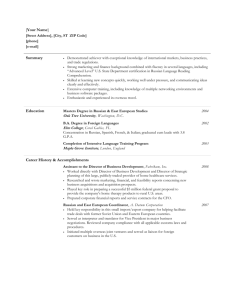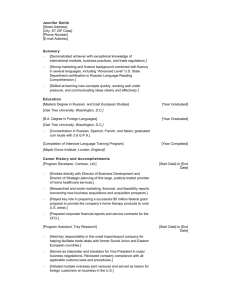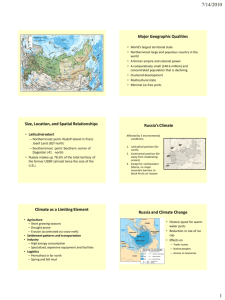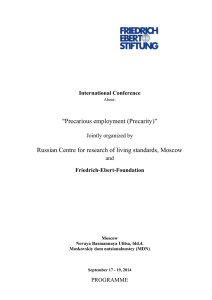REES Courses Spring 2013
advertisement
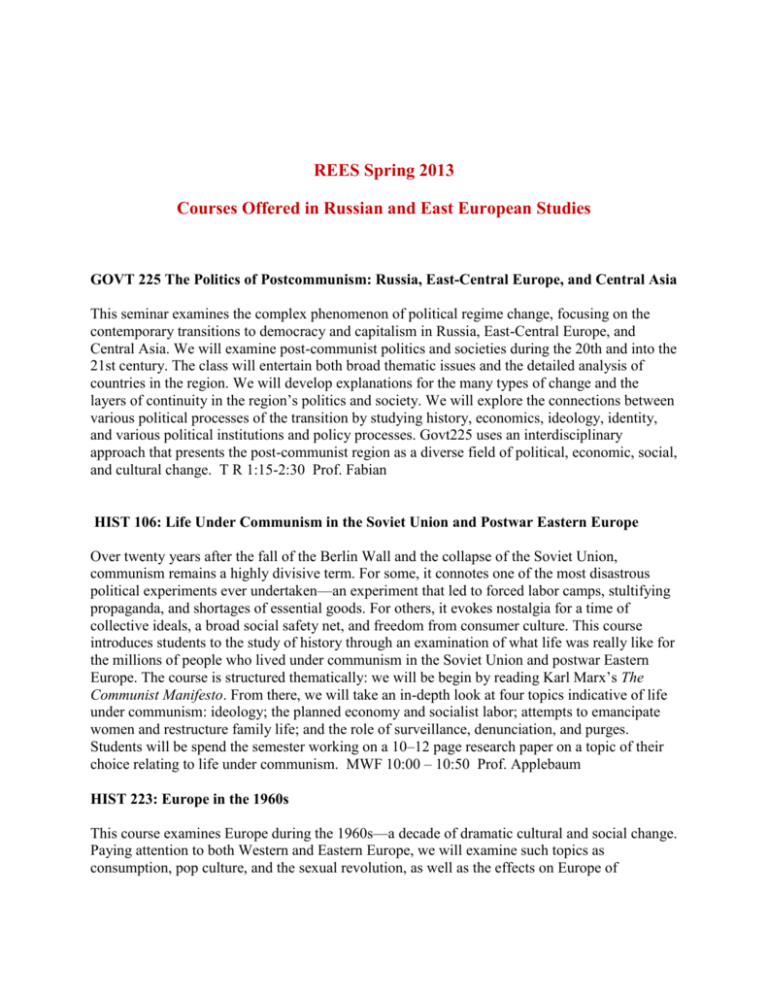
REES Spring 2013 Courses Offered in Russian and East European Studies GOVT 225 The Politics of Postcommunism: Russia, East-Central Europe, and Central Asia This seminar examines the complex phenomenon of political regime change, focusing on the contemporary transitions to democracy and capitalism in Russia, East-Central Europe, and Central Asia. We will examine post-communist politics and societies during the 20th and into the 21st century. The class will entertain both broad thematic issues and the detailed analysis of countries in the region. We will develop explanations for the many types of change and the layers of continuity in the region’s politics and society. We will explore the connections between various political processes of the transition by studying history, economics, ideology, identity, and various political institutions and policy processes. Govt225 uses an interdisciplinary approach that presents the post-communist region as a diverse field of political, economic, social, and cultural change. T R 1:15-2:30 Prof. Fabian HIST 106: Life Under Communism in the Soviet Union and Postwar Eastern Europe Over twenty years after the fall of the Berlin Wall and the collapse of the Soviet Union, communism remains a highly divisive term. For some, it connotes one of the most disastrous political experiments ever undertaken—an experiment that led to forced labor camps, stultifying propaganda, and shortages of essential goods. For others, it evokes nostalgia for a time of collective ideals, a broad social safety net, and freedom from consumer culture. This course introduces students to the study of history through an examination of what life was really like for the millions of people who lived under communism in the Soviet Union and postwar Eastern Europe. The course is structured thematically: we will be begin by reading Karl Marx’s The Communist Manifesto. From there, we will take an in-depth look at four topics indicative of life under communism: ideology; the planned economy and socialist labor; attempts to emancipate women and restructure family life; and the role of surveillance, denunciation, and purges. Students will be spend the semester working on a 10–12 page research paper on a topic of their choice relating to life under communism. MWF 10:00 – 10:50 Prof. Applebaum HIST 223: Europe in the 1960s This course examines Europe during the 1960s—a decade of dramatic cultural and social change. Paying attention to both Western and Eastern Europe, we will examine such topics as consumption, pop culture, and the sexual revolution, as well as the effects on Europe of decolonization, the Vietnam War, and Third World revolutionary movements. The final segment of the course will be devoted to the upheavals in 1968 on both sides of the iron curtain. MWF 11-11:50 Prof. Applebaum Russian 102 Elementary Russian Fundamentals of the spoken and written language. Development of reading, writing, speaking, and listening skills. An introduction to the culture of Russia. MWF 10:00-10:50 Prof. Sajez Rusian 112 Intermediate Russian Review and expansion of basic grammar and vocabulary. Short literary and cultural readings. Attention to developing reading, writing, and conversational skills and a deeper understanding of Russian culture. MWF 11:00 – 11:50 Prof. Sajez Russian 209 Survey of Russian Literature I A chronological study of the major literary movements and styles from the seventeenth century to the present in prose, poetry, and drama. Special attention is given to the ideological and historical background. Prerequisite: Russian 112 or equivalent proficiency MWF 12:10 – 1:00 Prof. Sajez
